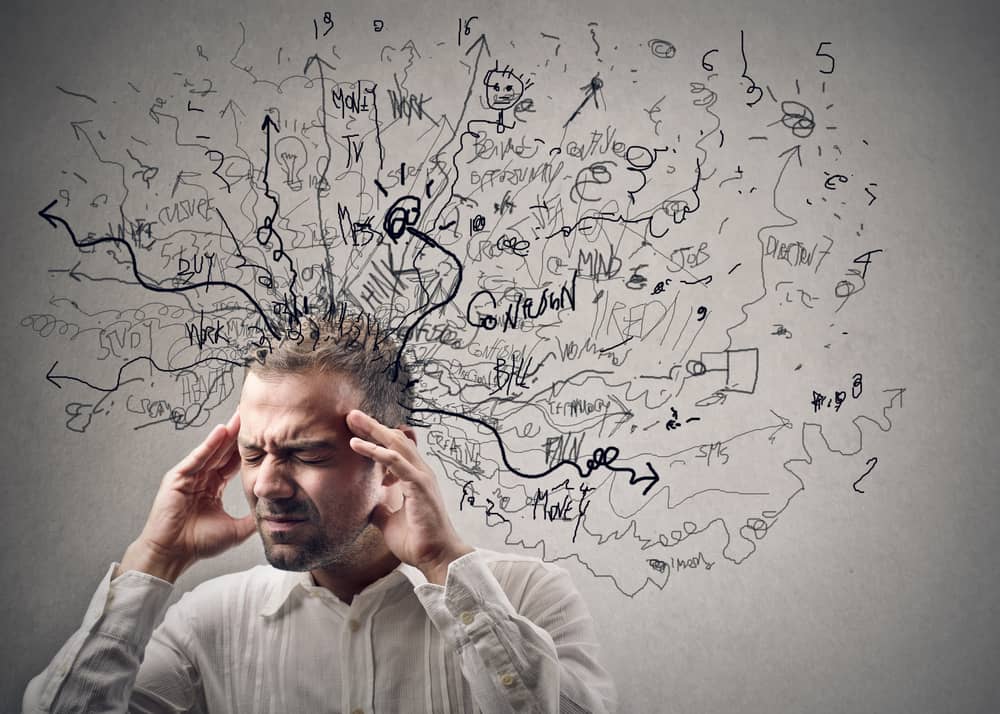Contents:
- Medical Video: Can You Visualise This? (Aphantasia Explained)
- What is Aphantasia?
- What causes a person to experience aphantasia?
- People with aphantasia can still dream
Medical Video: Can You Visualise This? (Aphantasia Explained)
Have you ever imagined something on your mind, such as walking in the middle of a flower field while enjoying the cool breeze or winning tens of millions of lots? Imagining imagining happy things that have become your dreams that have not yet been reached might be one of your favorite activities. However, did you know that not everyone is given that ability? Yes, this condition is called aphantasia.
What is Aphantasia?
Aphantasia is a condition in which a person is unable to create images or shadows visually in his mind. People with aphantasia are often termed people who do not have a "mind eye". The mind's eye is in the brain like a screen that shows a series of activities that we imagine and are colorful.
People who experience aphantasia are unable to project images on the screen. This condition is not a physical defect or a sign of a particular disease, but a neurological disorder (nerve) that affects the brain without serious health risks.
Aphantasia was first discovered by Sir Francis Galton, a world explorer and anthropologist. Galton was always fascinated by human intelligence and had an interest in conducting innovative experiments by analyzing the complexity of the brain system when someone imagined or imagined something in their minds.
Galton then conducted a survey to find out how many people had the ability to imagine visually. Strangely, the results show that 2.5 percent of the UK population has a condition which is later called aphantasia. In other words, 1 in 40 people cannot imagine a situation or fictitious things in his mind.
Furthermore, more focused research was conducted in 2005 by cognitive neurologist Adam Zeman at the University of Exeter. Zeman conducted a study based on a patient's report stating that he lost the ability to describe or imagine in his mind.
Patients with initials MX lose their imagination after heart surgery. After the researchers published the results of a study of the MX in the journal Neuropsychologia, 21 people contacted the research team and claimed to have the same conditions as the MX.
These people participated in an experiment, complete with the control group. This experiment was carried out by looking at their brain activity using an fMRI machine to determine which parts of the brain are responsible for imagining certain scenarios complete with color visual images in their brains given X-rays.
What causes a person to experience aphantasia?
Based on the results of the examination, MX along with other patients, showed a decrease in activity in the brain part of the parietal and frontal lobes, which are associated with abstract human thinking. This section plays a role in daydreaming or imagining activities. The main part of the lobe is to store memories and integrate the main visual and olfactory senses.
In those parts of the brain that a person's visual process occurs. So that people can imagine shape, taste, appearance, smell, as part of the visualization effect. Furthermore, the occipital and temporal lobes process this information and project it visually on the screen of the human mind.
People with aphantasia are thought to have problems in certain parts of the brain so that they are not able to imagine and visualize something.
People with aphantasia can still dream
However, research shows that people who experience aphantasia can still dream with very clear visualization. Zeman said, this might happen because the part of the brain that experiences this disorder has the ability to display a series of visual activities only when a person loses consciousness, namely when sleeping. Conversely, when aware, the brain that plays a role in this activity is not able to realize the visualization.
Most, people who experience this condition are very young, even for some people this disorder they have brought from birth or known as congenital aphantasia. Fortunately, this inability is not a significant obstacle to their survival. Although in some time, some people feel depressed when they are unable to remember and describe the faces of their loved ones, especially after the person dies.
Research on aphantasia is still relatively rare, so the drug has not been found. Researchers are still finding out the basic causes of this condition, whether genetic or psychological.













